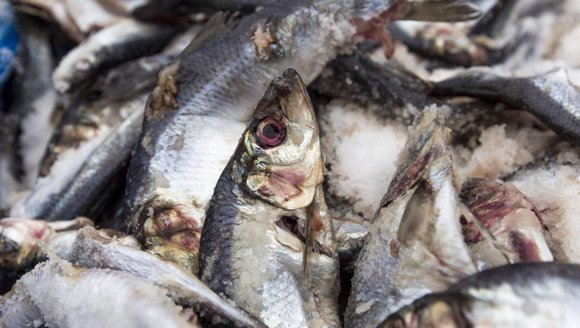Community Plans for Gulf of Maine 2050
Announcements | Dec 31, 2019
In November, the Gulf of Maine Research Institute, along with the Gulf of Maine Council, the Huntsman Marine Science Centre, and a host of regional and international partners, invited leaders from across New England and the Maritime Provinces to convene in Portland, Maine for the Gulf of Maine 2050 International Symposium.

The Gulf of Maine 2050 International Symposium brought together multiple science disciplines, natural resource managers, municipal planners, representatives from marine industries, community and business leaders, NGOs, and the philanthropic community. The workshop offered an unprecedented opportunity to synthesize a diverse mix of environmental, economic, social, and institutional perspectives on coastal climate resilience, and collaborate to act on emerging challenges and opportunities.
Communities around the Gulf of Maine are grappling with some of the fastest changes in temperature, acidity, and sea level of anywhere in the world. What does that mean for our ecosystem? What does it mean for us? That’s what this conference was all about.
Andrew Pershing, Ph.D. Adjunct Scientist & Former Chief Scientific Officer![]() Andrew Pershing, Ph.D. Adjunct Scientist & Former Chief Scientific Officer
Andrew Pershing, Ph.D. Adjunct Scientist & Former Chief Scientific Officer
The event kicked off with special keynotes to set the global and local context for the week. Plenaries on subsequent mornings featured scientific experts and practitioners to explore local implications of the next 30 years of warming waters, rising seas, and ocean acidification. The packed program also included climate adaptation presentations, collaborative workshops, and poster sessions.
In advance of the symposium, a team of experts developed drafted scientific scenario papers to increase our understanding about how the key drivers — warming waters, sea level rise and precipitation, ocean acidification — are expected to impact conditions in the Gulf of Maine over the next 30 years.
These scientific scenarios informed the interdisciplinary work at the symposium where we will explore how potential changes related to climate and other factors could impact the Gulf of Maine environmental, community, and economic sectors in the future.
Explore the papers:
- The Gulf of Maine in 2050
- Climate Change in the GOM 2050
- Temperature and Circulation Conditions in the Gulf of Maine in 2050 and their Expected Impacts
- Draft Whitepaper report on Ocean Acidification for the Gulf of Maine 2050 conference
After an inspiring and highly productive week focused on promoting a resilient Gulf of Maine, Rob Stephenson of Fisheries and Oceans Canada delivered closing remarks for the symposium, telling the audience, “We encourage all to build on the knowledge and ideas from this meeting to work together, show leadership, and take action in promoting solutions for the Gulf of Maine and beyond!”

Gulf of Maine 2050 Summary Report
Throughout the Gulf of Maine, groups have already begun to work together to innovate adaptation strategies on the local and regional level. We’ve highlighted some of their stories here, along with insights and information we think will help move the Gulf of Maine toward a brighter and more manageable 2050.
In The News
Goodbye herring, hello squid: Fishermen’s catch likely to change in warming Gulf of Maine
Portland Press Herald|Nov 7, 2019
Read Next
-
![Reaching Resilience: Climate Services for Gulf of Maine Communities]()
Reaching Resilience: Climate Services for Gulf of Maine Communities
What resilience looks like in Portland might be different than what it looks like in Tremont, but our Climate Center team provides cities and towns …
Perspectives
-
![Gulf of Maine Warming Update: Winter 2023–24]()
Gulf of Maine Warming Update: Winter 2023–24
Over the past decade, scientists have led a body of research that highlights the rapid pace of warming in the Gulf of Maine. To help …
Reports
-
![National Climate Assessment Contributions]()
National Climate Assessment Contributions
In late 2023, four scientists from Maine played significant roles in shaping The Fifth National Climate Assessment (NCA5).
Tidings
-
![Introducing Gulf of Maine Tastemakers]()
Introducing Gulf of Maine Tastemakers
In early 2024, we launched our Gulf of Maine Tastemakers program, which consists of businesses and institutions that are committed to putting local seafood front …
Tidings




